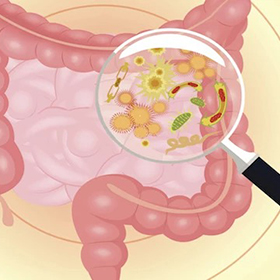
We now know that gut health is directly linked with autoimmune conditions. An unrestrained immune system can turn against our body’s own cells, causing autoimmune disorders. Research is now showing a strong link between autoimmunity, inflammation and gut dysbiosis in many autoimmune diseases. At least 80 autoimmune diseases have been identified, including rheumatic disorders, ulcerative colitis, Crohn’s disease, type 1 diabetes (T1D), lupus, psoriasis, multiple sclerosis (MS), allergies and asthma. In the field of rheumatology, intestinal dysbiosis has been associated with rheumatoid arthritis (RA), systemic lupus erythematosus, Sjögren’s syndrome and ankylosing spondylitis.
The observation that people with immune-mediated diseases have a different microbial community compared to healthy individuals suggests that the cause arises from improper training of the immune system by the microbiota(1).
Studies are also now showing probiotics are able to improve conditions through modulation of gut microbiota(2) and a growing number of studies are showing connections between autoimmune conditions linked with dysbiosis, including antibiotics and the use of protein pump inhibitors (PPIs) in controlling gastric reflux(3). The use of PPIs can potentially create far greater problems in the long run.
1 Petersen and Round, 2014.
2 Llewellyn and Foey, 2017; Alipour et al., 2014.
3 Andresson et al., 2016.